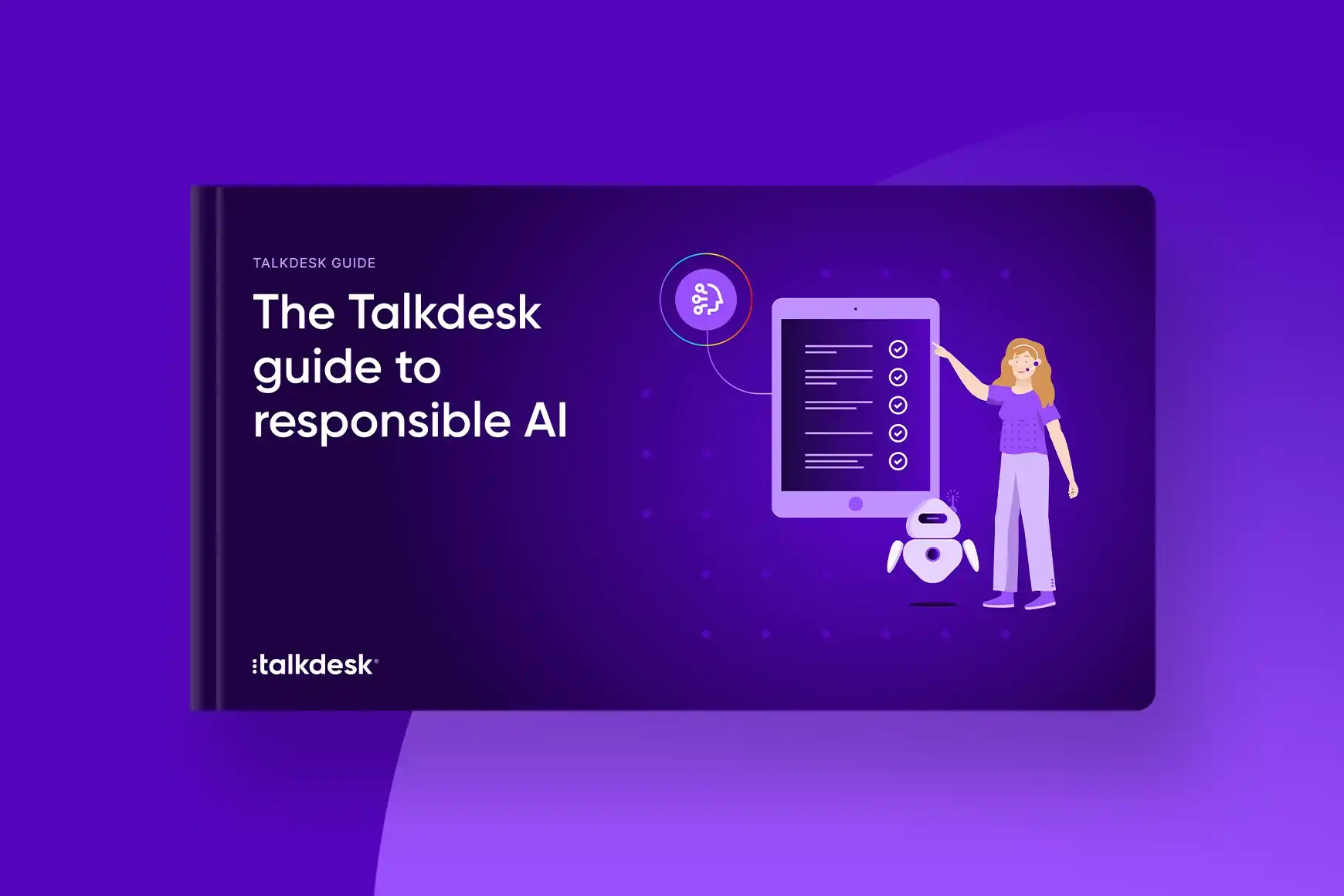5 important considerations for responsible AI use in contact centers

By Rei Kasai
0 min read

The emergence of generative AI and large language models (LLMs) has created a lot of buzz in customer experience (CX). Most of us see the potential for it to create more personalized interactions, streamline operations, and provide new and exciting customer insights, but there are also some serious ethical considerations for the contact center. It is important for companies that plan to use these AI models to understand the potential pitfalls and consider processes that will help ensure safe and positive customer experiences.
Governments around the world are already starting to establish standards and regulations to protect customers from AI. President Biden’s signing of the Executive Order on AI Safety and the Bletchley Park AI Safety Summit—have started to lay the foundation for more rigorous oversight. Both events focused on topics that directly impact CX and the contact center, such as standing up for consumer rights, ensuring civil rights, or protecting privacy. Responsible AI is going to be critical to maintain customer trust.
Five of the most important ethical concerns of generative AI and LLMs that have a direct bearing on the contact center include:
1. Transparency.
Transparency is paramount in the ethical deployment of generative AI systems within the contact center environment. Customers possess the right to know when their interactions are mediated by artificial intelligence. This disclosure is especially critical in the realm of chatbots and virtual agents, as failure to provide full transparency can erode trust in the company and damage customer relationships with the brand.
The design of AI systems must prioritize clear communication, ensuring customers are informed when they are engaging with automated processes. Full disclosure not only aligns with ethical standards but also empowers customers with the knowledge that their queries or concerns are being handled by AI. This transparency fosters a sense of honesty and openness, contributing to a positive customer experience.
2. Bias.
Another ethical consideration revolves around the potential for bias in generative AI models, which are trained on extensive datasets. The risk of perpetuating biases present in training data is significant and could result in unequal treatment of contact center agents. Companies must be vigilant in addressing and mitigating biases to ensure fairness in interactions.
Mitigating bias involves ongoing monitoring and refinement of AI models to identify and eliminate any discriminatory patterns. This commitment to fairness is not only ethically imperative but also aligns with legal and societal expectations for unbiased and equitable treatment. By actively addressing biases in generative AI, companies demonstrate their commitment to providing inclusive and nondiscriminatory customer service.

GUIDE
The Talkdesk guide to responsible AI.
AI is shaping customer service, but responsible and ethical AI implementation should be at the forefront of every organization’s digital transformation, ensuring contact centers are fair and secure platforms to deliver the best customer experiences.
3. Data security.
The ethical use of generative AI in the contact center necessitates a robust commitment to data security. Handling personally identifiable information requires the implementation of stringent measures to protect customer data. End-to-end encryption is a fundamental component, ensuring that data remains secure during transmission. Additionally, data at rest must be safeguarded through secure storage practices.
Adherence to data privacy regulations is critical, with companies required to follow industry standards and legal frameworks to protect customer information. Ethical considerations extend beyond the functionality of the AI itself to encompass the entire data handling process. Customers need assurance that their data is treated with the utmost care and confidentiality, reinforcing trust in the company.
4. Truthful output.
Maintaining the integrity of output generated by AI systems is a core ethical concern. Generative AI has the potential to produce information that may not align with factual accuracy, leading to the dissemination of misinformation. Companies must prioritize the development of AI technologies that reliably convey truthful information to customers.
Ensuring truthful output involves rigorous testing and validation of AI-generated content. Companies should implement safeguards to detect and rectify instances where the AI may inadvertently generate inaccurate or misleading information. By upholding the accuracy of information provided by AI systems, companies not only adhere to ethical standards but also contribute to building and maintaining trust with their customer base.
5. Job displacement mitigation.
Ethical considerations in the adoption of generative AI within the contact center extend to the potential impact on human employees. As companies increasingly turn to AI-powered chatbots, there is a legitimate concern about job displacement for human contact center agents. Ethical responsibility requires proactive measures to mitigate negative effects on employment.
Companies should implement strategies to address job displacement, focusing on retraining and upskilling programs. By providing employees with the necessary skills for roles that complement AI automation, companies can ensure a smoother transition to a more automated service model. Ethical considerations also involve prioritizing employee well-being, acknowledging the human element in customer service and valuing the contributions of contact center agents.
The speed of recent advances in LLMs and generative AI has been astounding, and there are legitimate concerns as outlined above. Rapid development of AI without safeguards could result in some of those negative outcomes coming to life.
Currently, there is no proper oversight ensuring that major AI labs are working ethically. However, the Talkdesk commitment to our customers and the millions of people who interact with our AI-powered software systems every day is to continuously evaluate the impact of our decisions against the ethical considerations outlined above.
For the LLM-powered features currently available by Talkdesk, and those under development, we allow for transparent decision-making, empower human reviewers to modify the system if biases occur, and have an absolute commitment to data privacy and security. Responsible AI is baked into the platform.
While there’s no doubt that LLMs will improve the quality of service for the millions of us looking for help and support from the companies we love, it’s our responsibility as software engineers, designers, and product leaders to consider and address these concerns and ensure that our innovative software aligns with safe and ethical standards.
Finding this info helpful?
Learn even more about how Talkdesk can increase the quality of your Customer Experiences.






